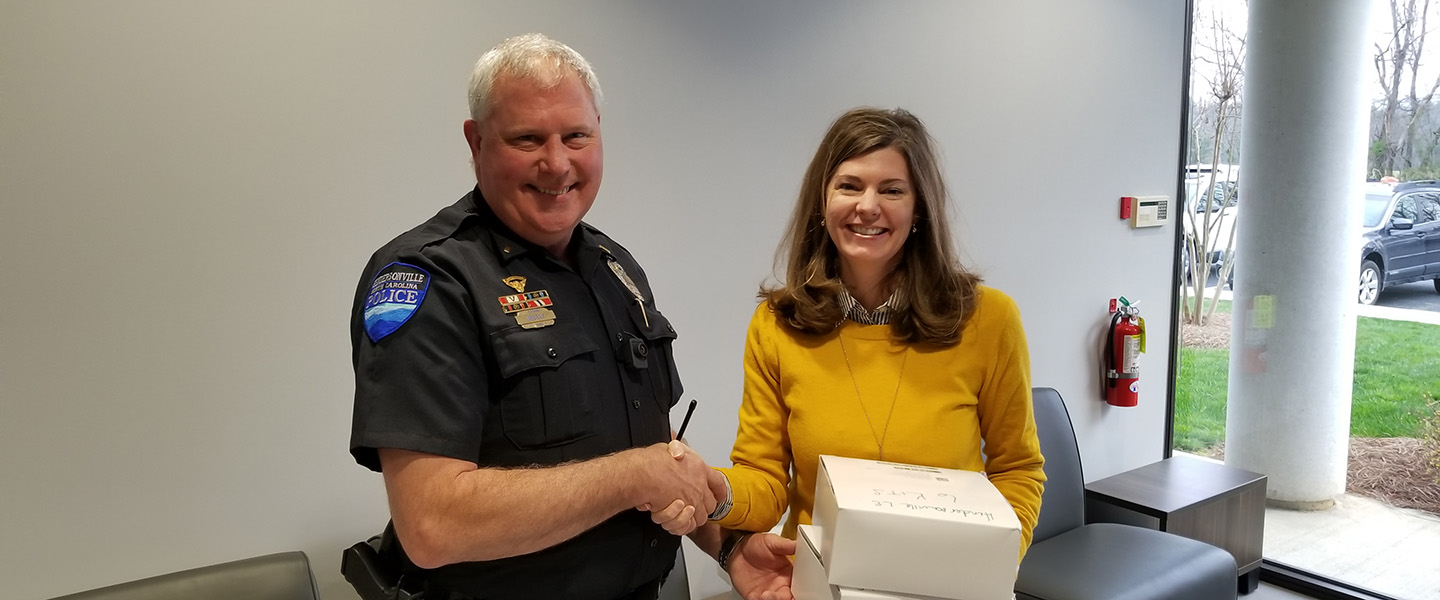“Most of the ladies we’re working with, their support network of people who are in recovery, or a support network, is very limited, if any,” said Peer Support Specialist Cassie York, a Mitchell County native. “It makes a really big difference to actually have someone who’s living in recovery, that has been where they’ve been, and that itself gives people hope.”
TRACES – Toe River Advocates for Community Education and Support – aims to prevent women in the three-county area from using drugs or alcohol while pregnant and encourage recovery, wellness and hope. Vaya Health is a key partner in the initiative, funded through a two-year Duke Endowment grant to the Mountain Area Health Education Center (MAHEC). Almost all women referred to the program are facing addiction to prescription opioids or methamphetamines, as well as mental health concerns.
Through TRACES, women help women. Vaya provides certified peer support specialists – York, Jessica Hyatt and Cassie Burleson, to provide free support and assistance to participants. All three women are in long-term recovery and live in the region. To date, approximately 50 participants have enrolled in the program, which is intended to serve 100 women over the two years of the grant.
The program intends to reduce the number of unintended pregnancies and babies born going through opioid withdrawal, also known as neonatal abstinence syndrome, by supporting women at risk of substance use and facilitating access to long-acting reversible contraception, including IUDs and reproductive implants. Through peer support, participants are making strides toward these goals and celebrating participants’ own milestones.
Some women have regained custody of their children or been allowed visits. One woman decided to return to school, earned her CNA certification and now practices in the field. Another participant, now pregnant, started treatment for hepatitis C and connected with MAHEC to receive both prenatal care and medication-assisted treatment. One woman now has transportation after getting her own car. Other participants have been linked to treatment, are attending support groups more regularly or have expressed interest in contraception.
“(It’s) building trust with people who don’t know what trust is,” York said. “They’ve lost the capacity, or even the hope that they could ever trust anybody again.”
York and her colleagues accompany women to DSS meetings, provide transportation and even stand by their side in court hearings. Participants have found inspiration in that they, too, could one day help others in their shoes.
Meanwhile, TRACES is making inroads toward promoting a recovery-oriented culture. The initiative sponsors free, resilience-focused care training for county officials, justice departments, school systems and social and healthcare service providers.
It’s already helping reduce stigma and change mindsets, said MH/SU Care Coordinator Manager Meredith Comer, who supervises the program. “Even the littlest steps forward are huge,” she said.
At the same time, the program strengthens the resolve of Vaya’s peer support specialists and enhances their own recovery, said Burleson. “It’s a daily reminder of where we’ve been – from where we’ve come,” she said. “A daily reminder.”


